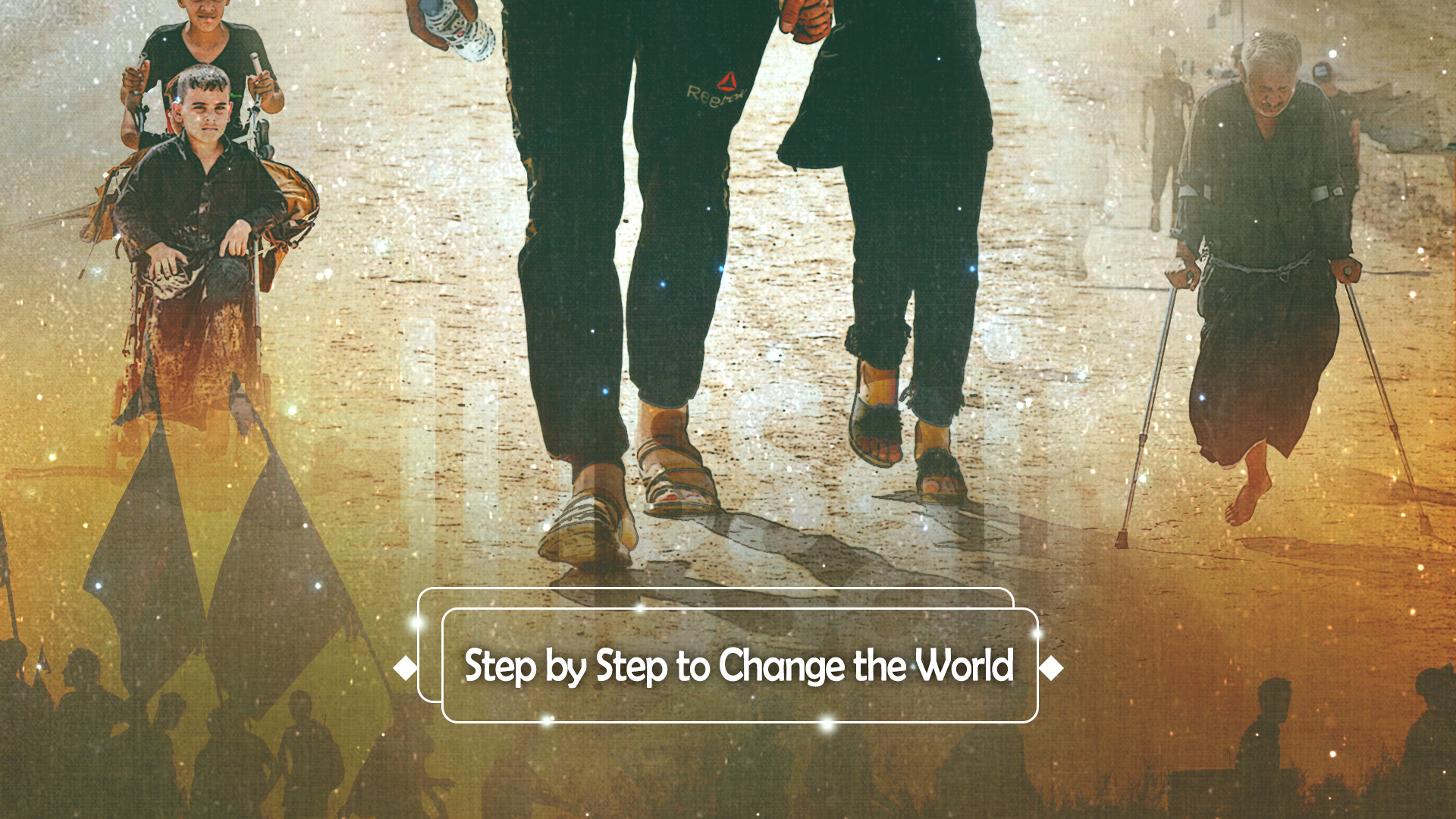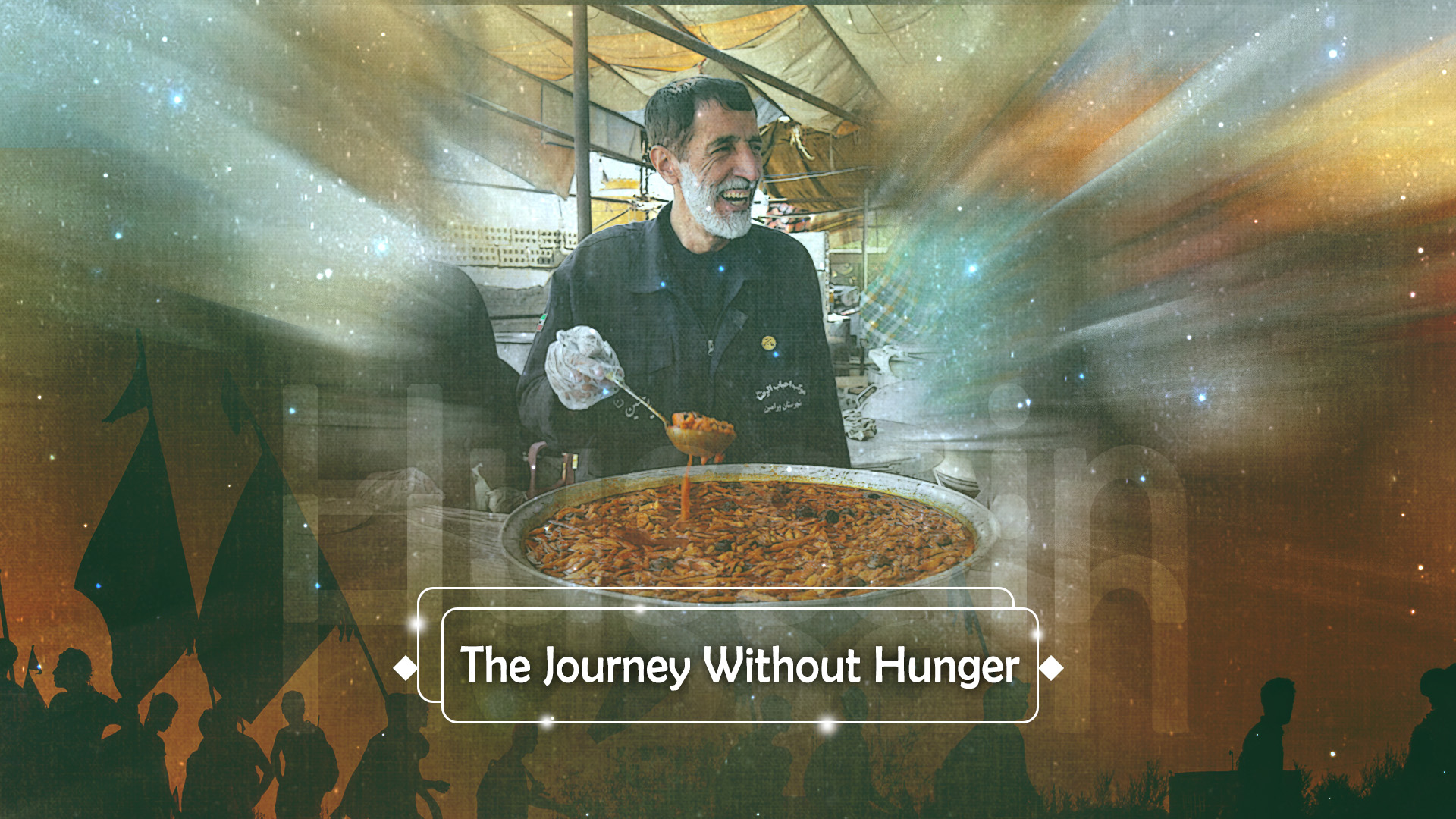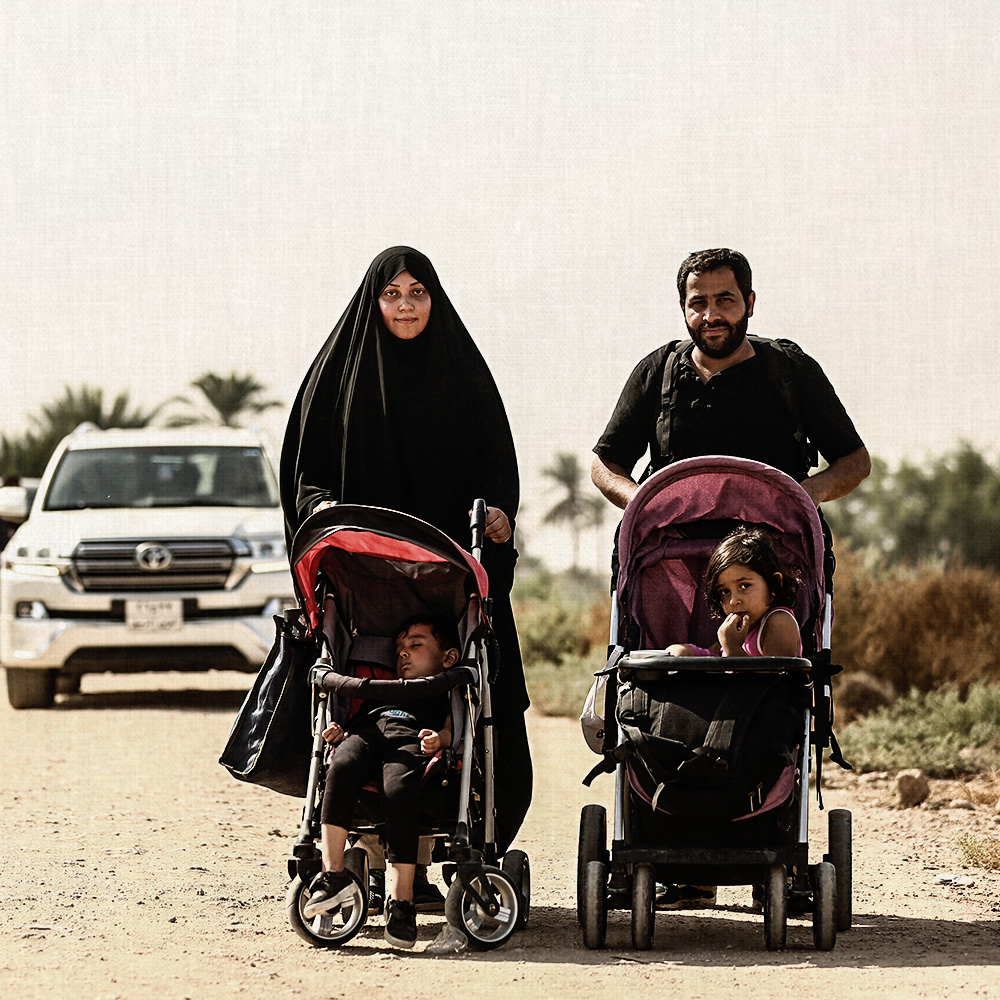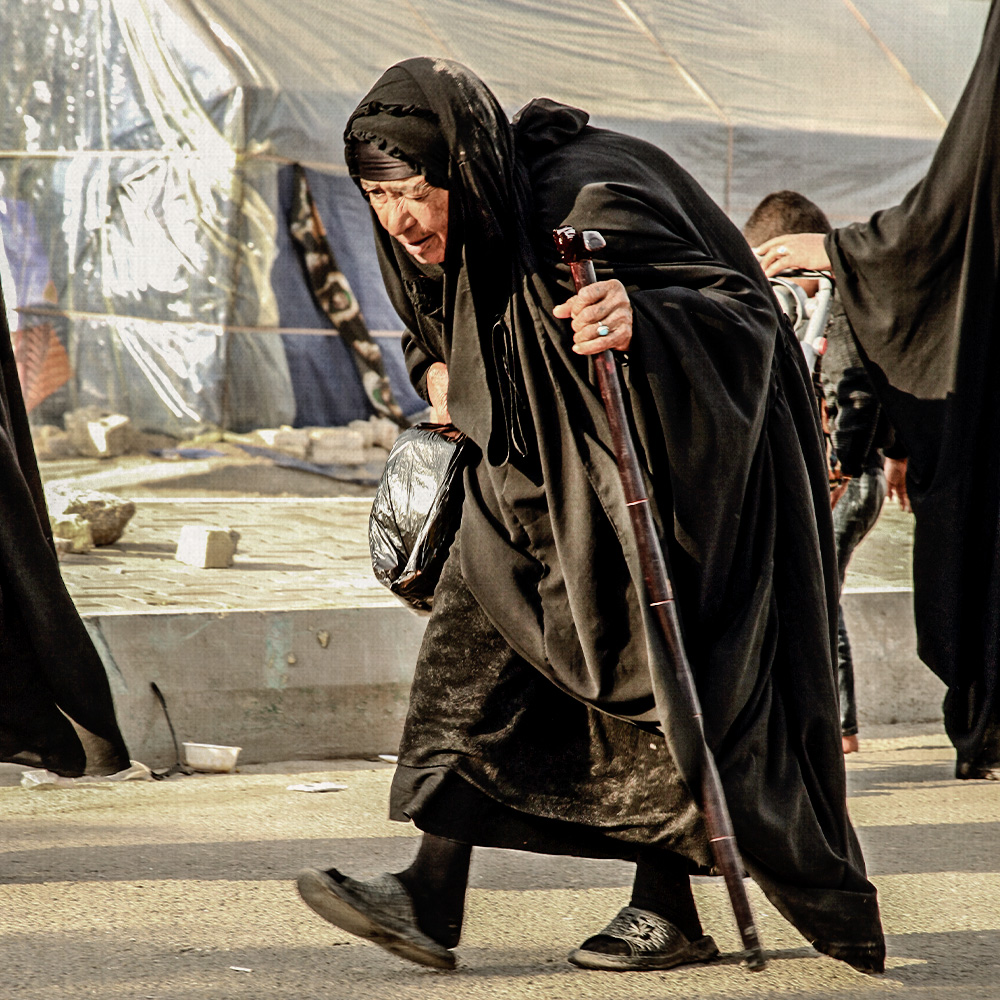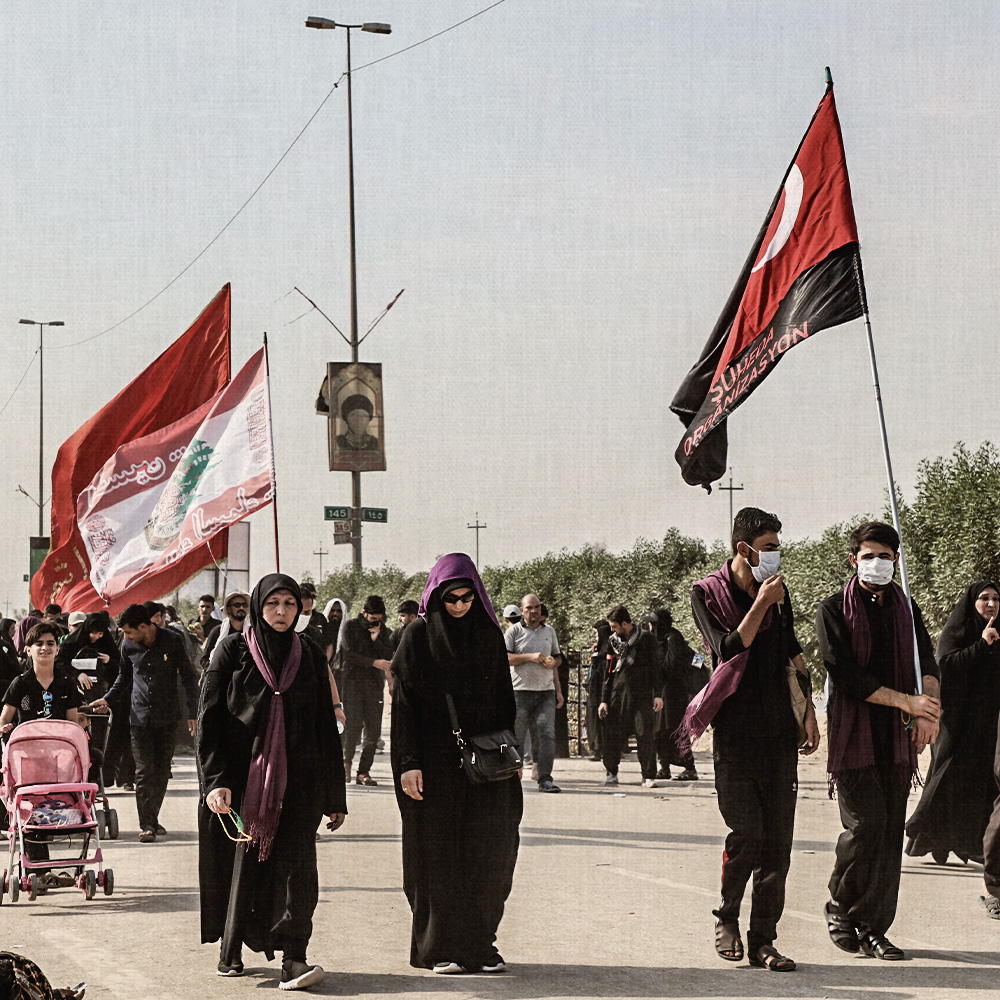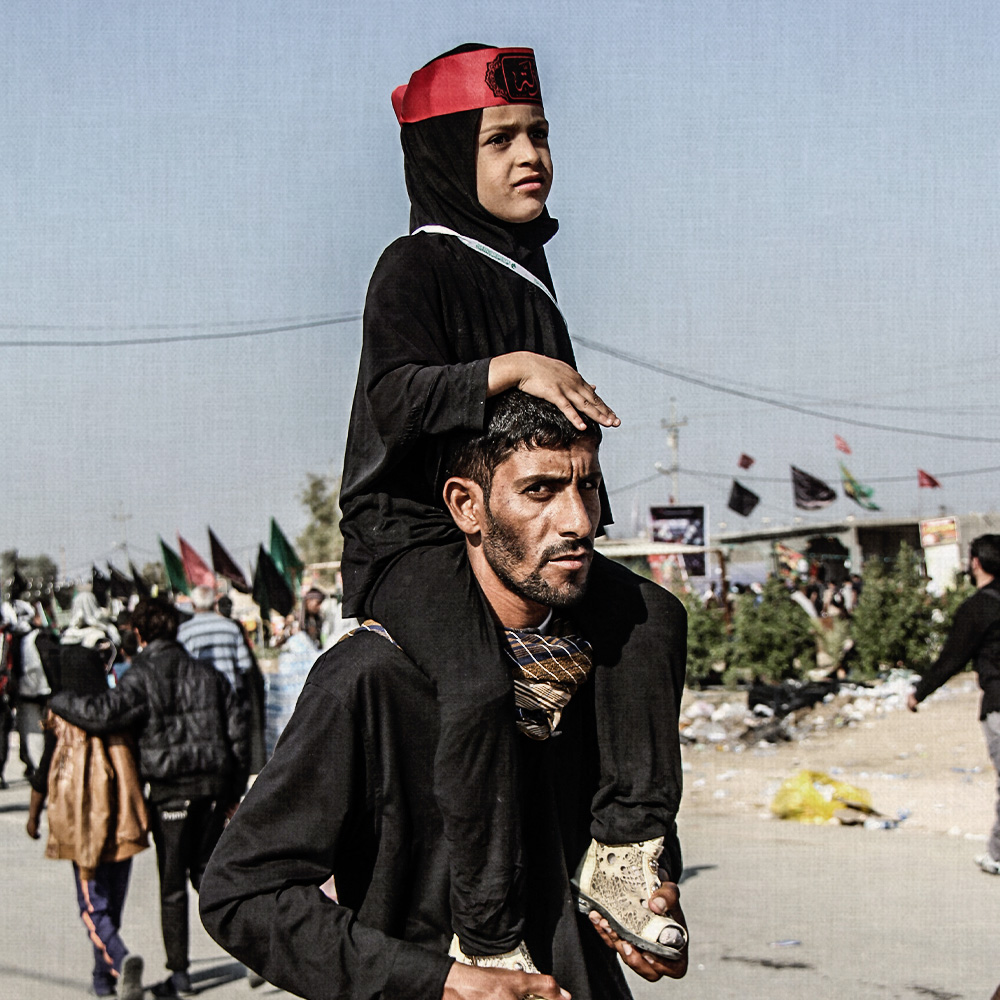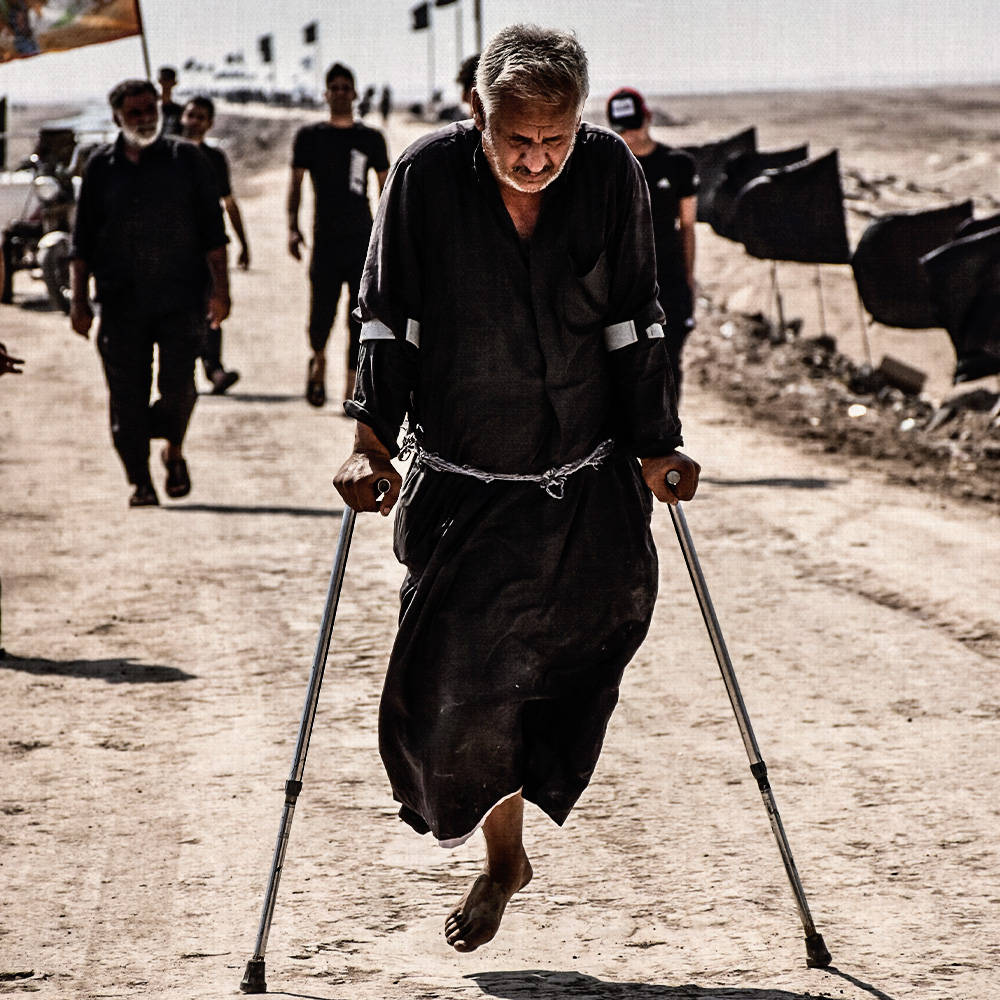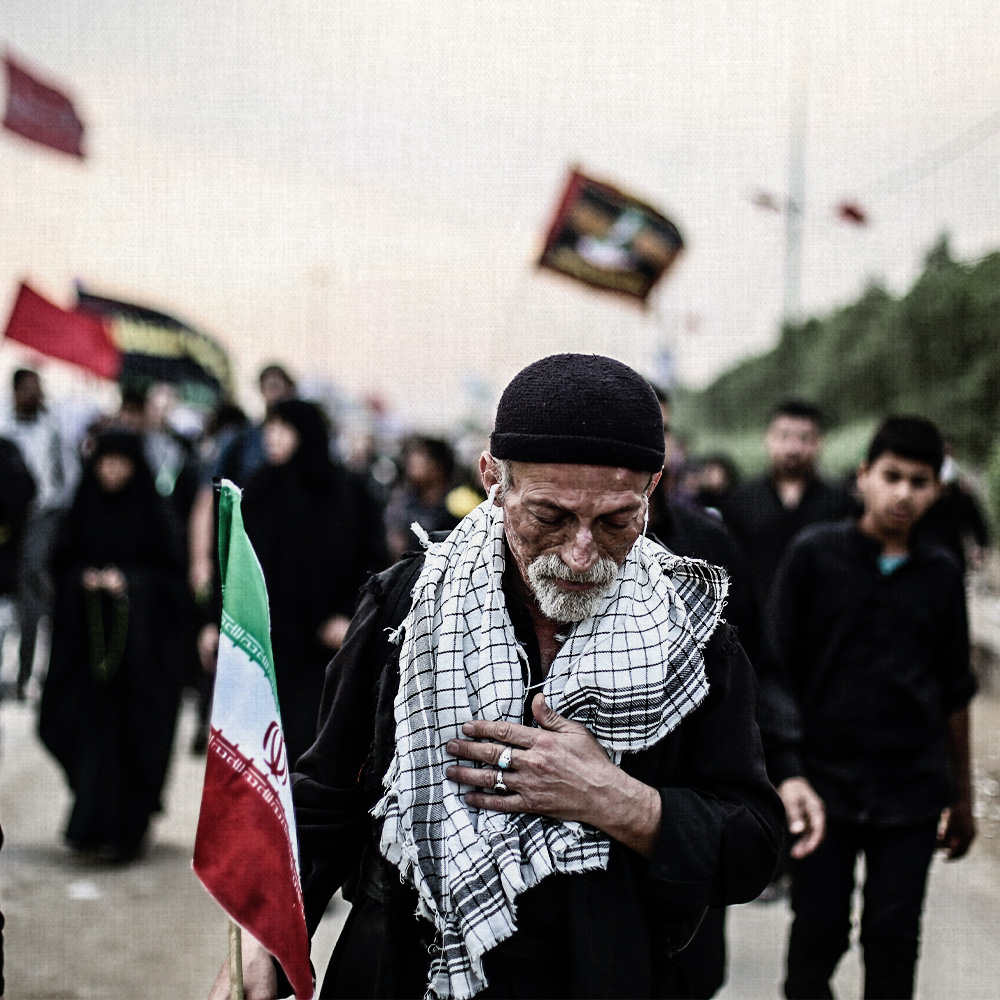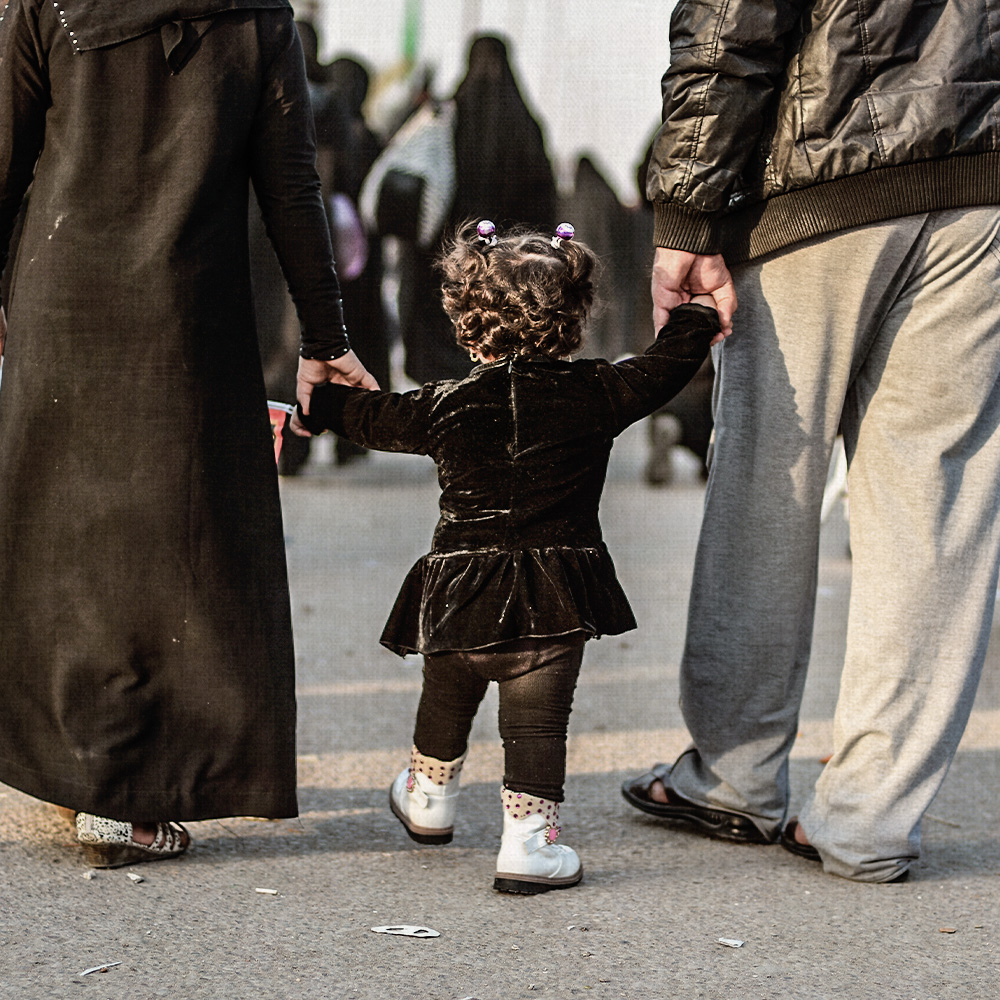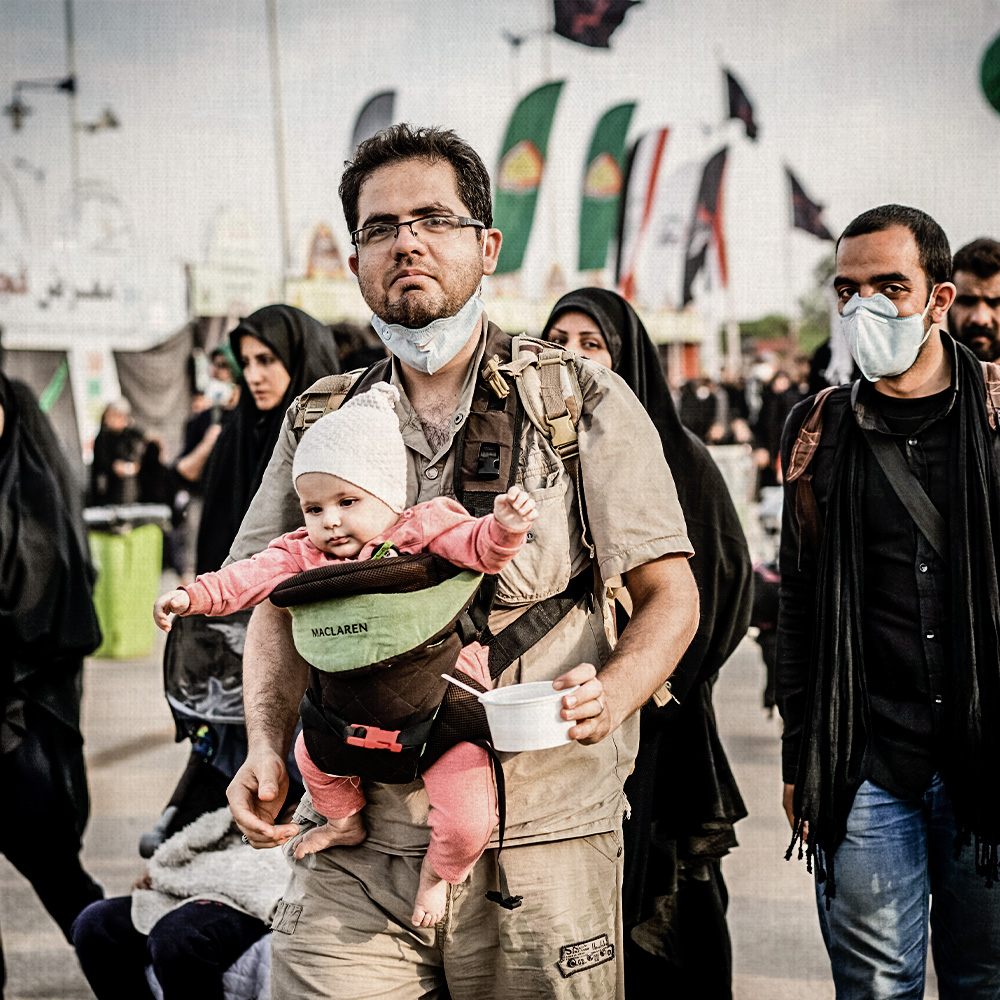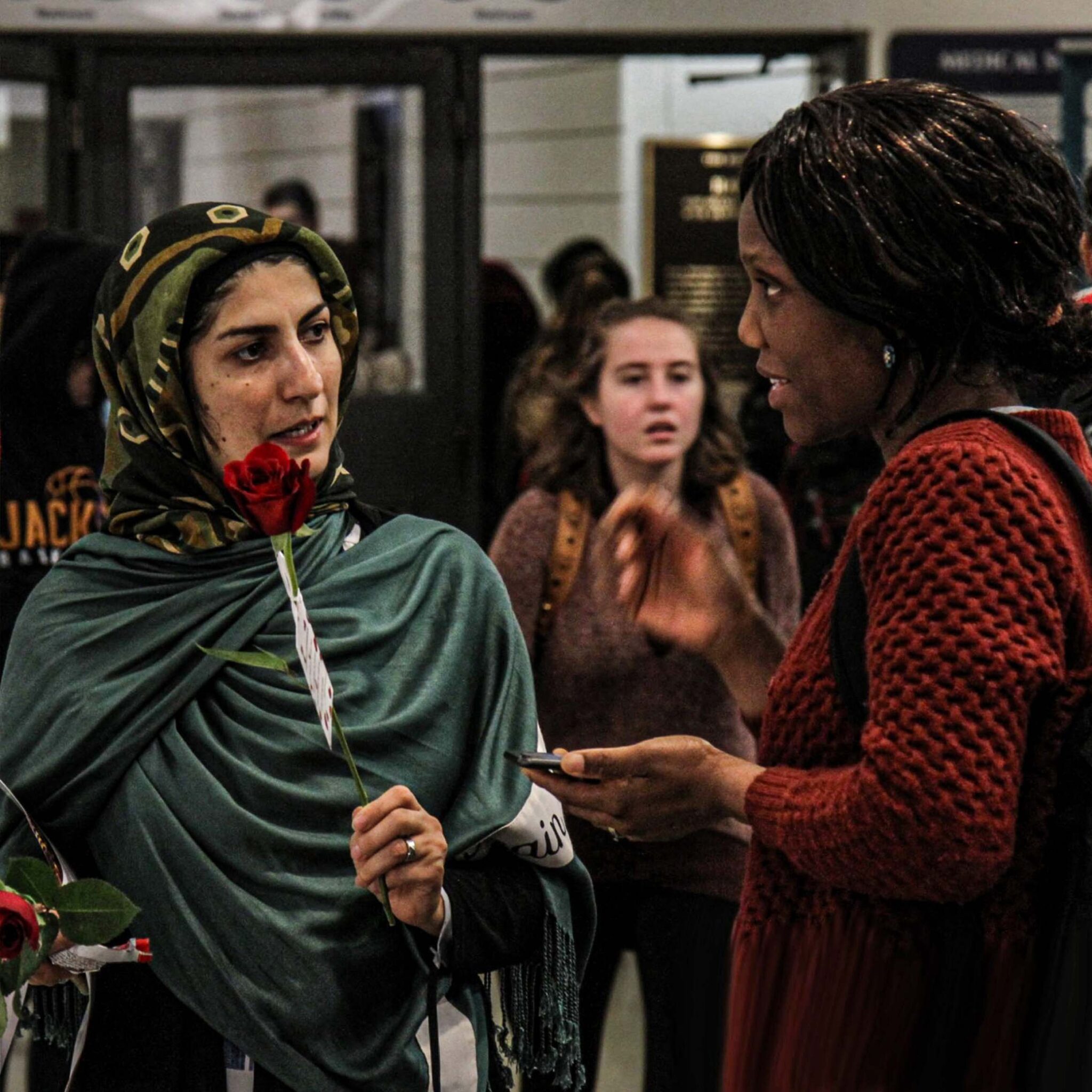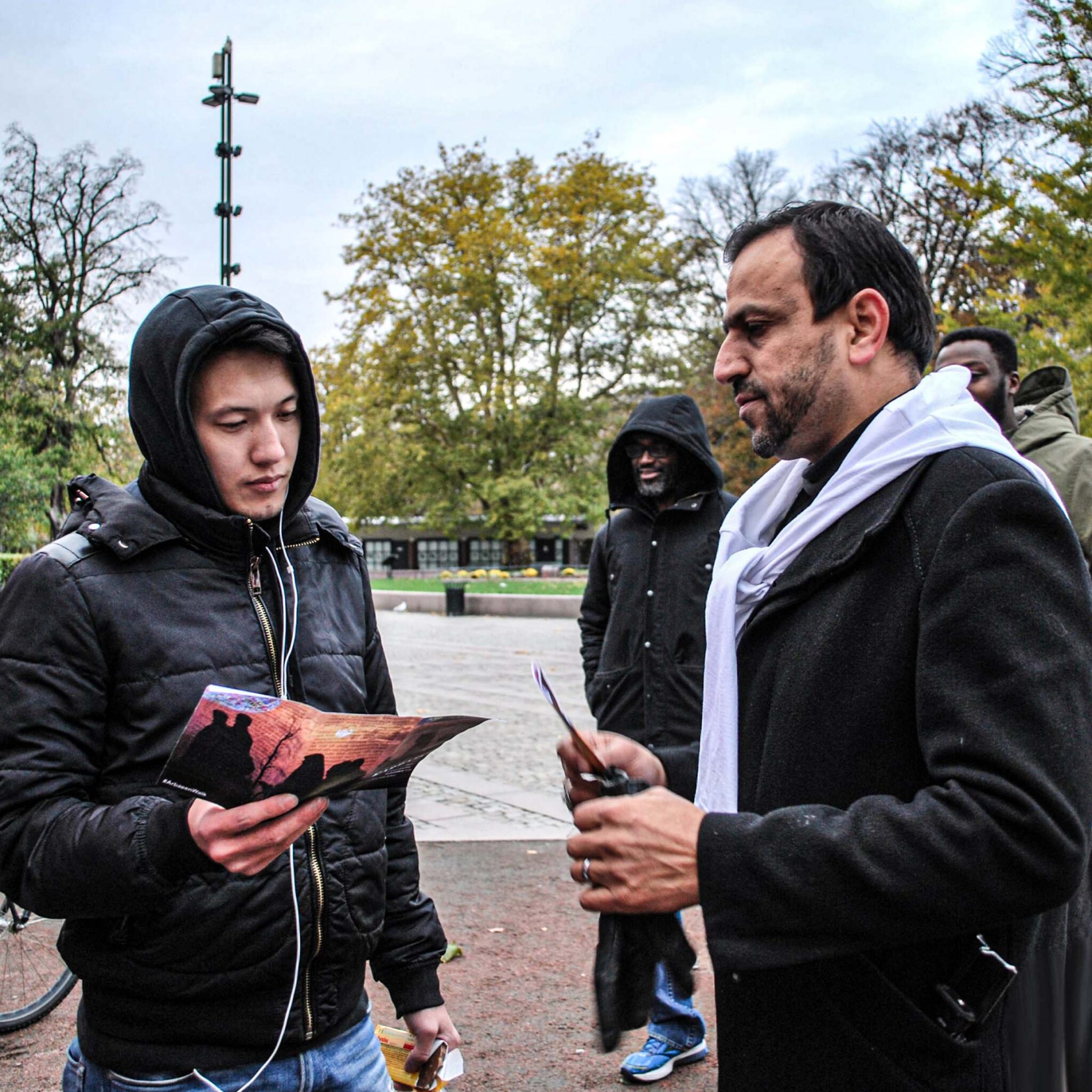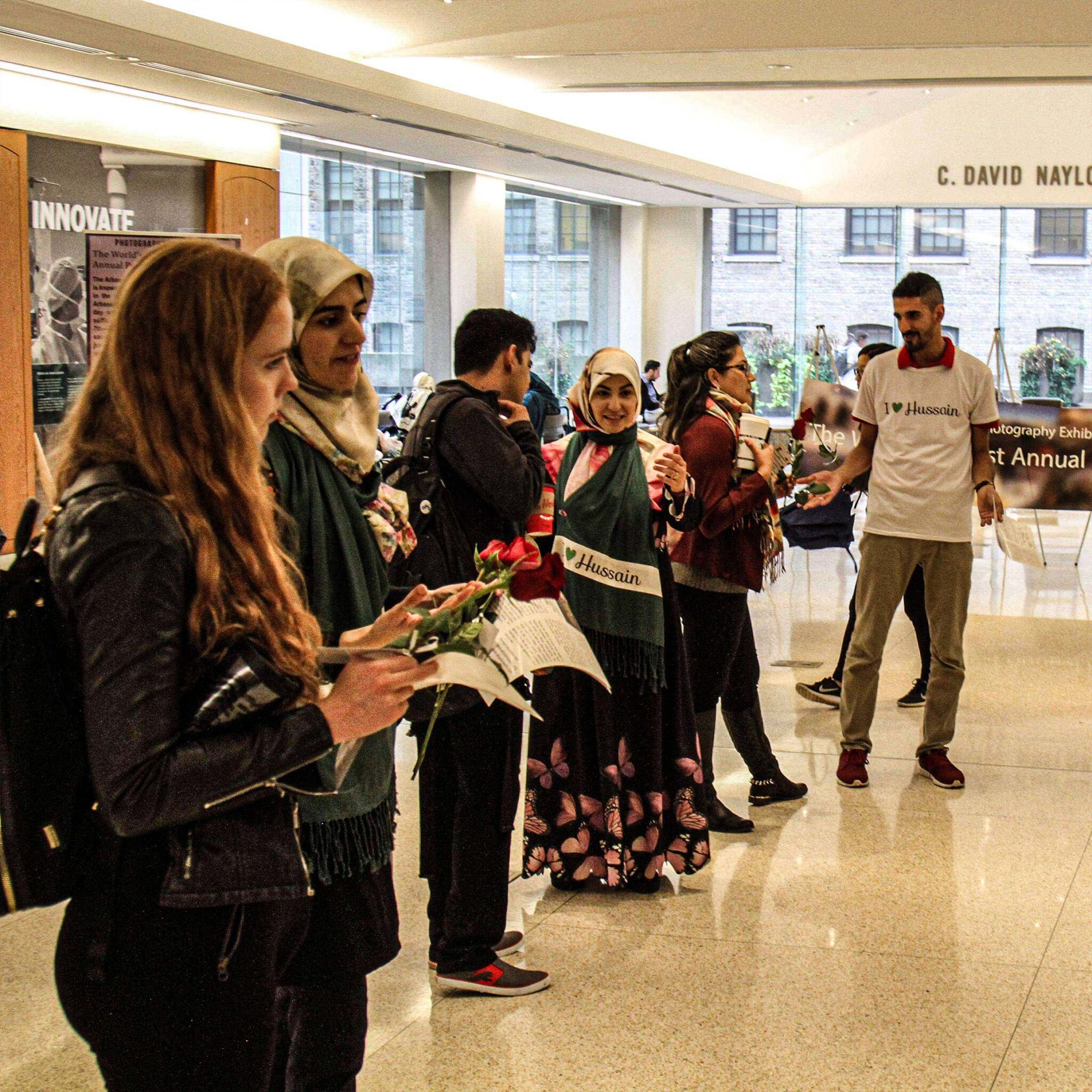Arbaeen
A Living Example of the Rule of the Righteous
What Does Arbaeen Mean?
Arbaeen literally means “forty” in Arabic. In Shia Islam, it refers to the fortieth day after the martyrdom of Hussain ibn Ali on the day of Ashura. The Day of Arbaeen falls on the 20th of Safar in the lunar calendar, and the first Arbaeen of Imam Hussain (PBUH) occurred in 61 AH.
On Arbaeen, Shia Muslims and all lovers of freedom and peace from around the world visit the shrine of Hussain ibn Ali (PBUH) in Karbala. Pilgrims travel this route on foot, making it the largest annual pilgrimage in the world. The Arbaeen Walk is one of the most astonishing events globally, setting new records in spreading kindness, joy, and love every year.


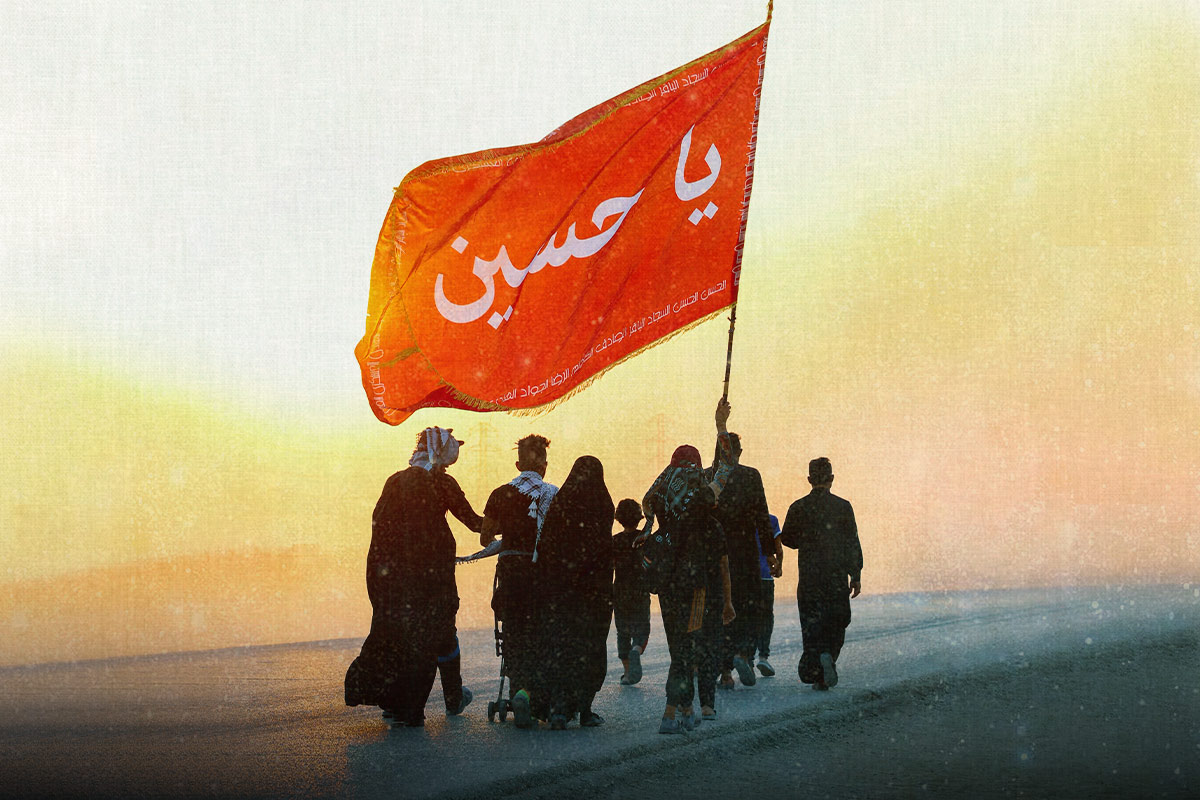


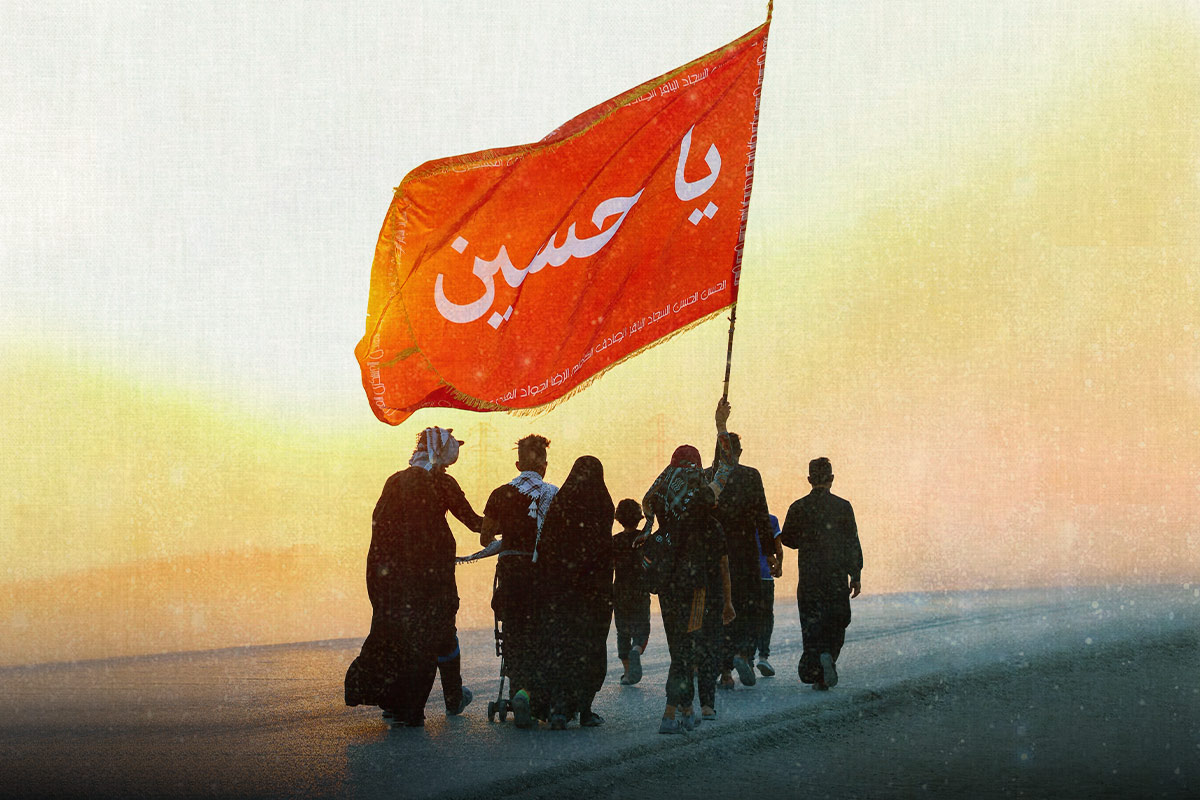


The History of Arbaeen
To understand the historical significance of Arbaeen, one must first examine the event of Ashura, which serves as its foundation and backdrop. After the departure of Prophet Muhammad (PBUH) in 11 AH, despite his clear appointment of his successor, Muslims deviated from his instructions and elected another leader in a council. This deviation and the failure to understand that only God can appoint the Prophet’s successor led to a situation where, in 60 AH, a man named Yazid ibn Muawiyah, who did not adhere to Islamic principles, became the caliph.
Imam Hussain (PBUH) believed that Yazid was unfit to rule Muslims and refused to pledge allegiance to him. Imam Hussain went from Medina to Mecca, and then, following invitations from the people of Kufa, he moved towards this city. However, he was surrounded by Yazid’s forces, and along with seventy-two of his loyal companions, he was martyred. This unequal battle occurred on the 10th of Muharram, 61 AH. The heads of the martyrs were taken to Yazid’s palace, and the women and children of Imam Hussain’s family were taken as non-Muslim captives to Sham (modern-day Syria). However, the sermons and enlightenment of Imam Sajjad (PBUH), the only surviving man at Karbala, and Lady Zainab (peace be upon her), Imam Hussain’s sister, forced Yazid to allow the captives to return to Medina. This was done to prevent further disgrace for Yazid among the people.
As the family of Imam Hussain (PBUH) journeyed back to Medina from Sham, they passed through the plains of Karbala. It was this poignant journey that gave birth to Arbaeen, the commemoration of the fortieth day after the martyrdom of the Ashura martyrs. This event, marked by the reunion of the heads of the martyrs with their blessed bodies, holds special significance for Shia Muslims. Imam Hussain (PBUH) and his companions are the only ones for whom Shia Muslims hold the Arbaeen ceremonies.
Arbaeen Pilgrimage
The Arbaeen Pilgrimage is one of the most significant rituals in Shia Islam. According to a hadith from Imam Hasan al-Askari (PBUH), the father of Imam Mahdi (AJ), the Arbaeen Pilgrimage is one of the five signs of a believer. The first Arbaeen pilgrim was Jabir ibn Abdullah Ansari, who arrived in Karbala on the first Arbaeen of Imam Hussain (PBUH) when Imam Sajjad (PBUH) buried Imam Hussain’s head in his grave. Jabir, a blind old man and companion of the Prophet, set out for Karbala on foot upon hearing of Imam Hussain’s martyrdom
Since then, the Arbaeen Pilgrimage has been performed annually. Although tyrannical rulers have attempted to stop it at various times, they have never succeeded. Today, as the month of Safar begins, pilgrims from all over the world come to Najaf, Samarra, or Baghdad and then walk to Karbala. The Arbaeen Walk, which Jabir started despite the oppressive atmosphere of the society and the threat of martyrdom, has always carried the message of freedom, resilience, and dignity.
Arbaeen: The Symbol of the Rule of the Righteous
According to all religions, the future of the world will be filled with happiness, peace, and love. All divine religions have promised the coming of a blessed savior who will bring lasting peace to the whole world
The paradise created after the advent of the Promised Savior is similar to the atmosphere of the Arbaeen Walk in Iraq. The Arbaeen route is so secure that even unaccompanied women can walk it safely, day or night. Families with young children participate in the Arbaeen Walk, and all amenities, including welfare, medical, and cultural services, are provided free of charge. For anyone who thinks deeply, the Arbaeen Walk is a sign and a model of the promised Rule of the Righteous, where everything is available to everyone, and a person’s honor lies in their humanity, not their wealth, power, gender, race, or social status.
Arbaeen: The World's Greatest Media Blackout
The Arbaeen Walk is the longest walk in the world and has also set the record for the highest number of participants. It also features the world’s largest dining table and the largest congregational prayer. The unique statistics of the Arbaeen Walk have, ironically, resulted in the greatest global media blackout. Mainstream media, controlled by arrogant governments, do not cover the astonishing news of this global Walk. Despite this media blackout, the number of participants in the Arbaeen Walk increases each year, as the Arbaeen Walk is not just an intra-religious ritual; it is a movement that will lead the world from knowing Imam Hussain (PBUH) to knowing the contemporary Hussain.

Arbaeen podcast
The Glad Tidings of Aebaeen
Arbaeen: Voices from the Pilgrimage
Faith: True Stories from the Arbaeen Walk

Arbaeen: Breaking Records
Arbaeen Walk: A Window to the Future
The statistics of the Arbaeen Walk are the most astonishing ones throughout the world. The Arbaeen Walk is not just a religious ritual; it is a small-scale model of the promised future of the world. Just consider the numbers: Over a period of ten to fourteen days, twenty-two million people travel to Iraq each year, enjoying free services such as food, lodging, transportation, and most importantly, security and happiness throughout the journey in the war-torn and impoverished country of Iraq.
The Arbaeen Walk is a civilization which demonstrates that if we act according to Islamic teachings, we can achieve lasting peace, happiness, and security, and that the new global civilization will only be built on Islamic foundations.
Just check the numbers carefully, 22,000,000 people go to Iraq every year for 10 to 14 days and during this time they use all the services for free; Food, sleeping place, means of transportation and most importantly security and happiness are provided to pilgrims all along this route and in the poor and war-torn society of Iraq.
The Arbaeen walk is proof of the belief that if we act according to the teachings of Islam, we will achieve security, tranquility and lasting peace, and the new world civilization will be built only in the shadow of Islam.
(Free Service Stations)
The Truth of Arbaeen
The lack of access to an infallible Imam who can guide the world from chaos to security is the greatest and only pain that chokes the world and humanity today. Each of us contributes to the continuation of this pain, and we can only overcome it by equipping ourselves with self-knowledge to properly know the Imam of our time and believe that the only way to save the world is the advent of Imam Mahdi (AJ) in our souls and hearts.

From Hussain's Arbaeen to Hussain's Army
- “O people of the world, I am the rising Imam.
- O people of the world, I am the avenging sword.
- O people of the world, my grandfather, Hussain, was killed thirsty.
- O people of the world, my grandfather, Hussain, was left naked.
- O people of the world, my grandfather, Hussain, was trampled on out of enmity.”

